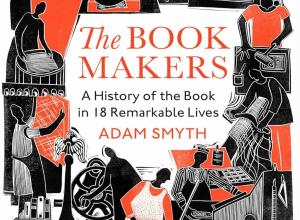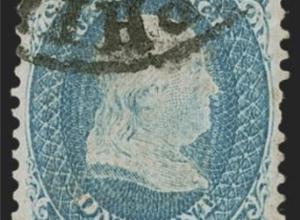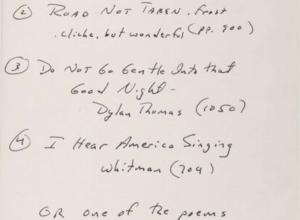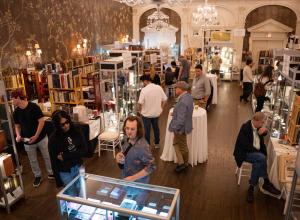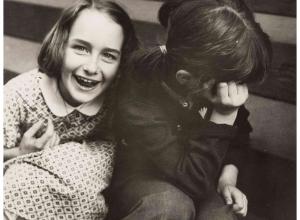Stories to Tell at the Harry Ransom Center
Photo credit: Pete Smith
Since its establishment in 1957, the Harry Ransom Center at the University of Texas at Austin has positioned itself as "a cultural compass" in the Lone Star State, acquiring phenomenal literary manuscripts, letters, film memorabilia, as well as a Gutenberg Bible once owned by Carl and Lily Pforzheimer now on permanent display in the first-floor rotuunda. (See "Instant Ivy" in A Gentle Madness for a thorough account of the "institutional bibliomania" pursued during the tenure of the Center's namesake founder, a drive that positioned it today as one of the finest research libraries in America.)
Now through July 16 the Center is hosting an exhibition highlighting some of those treasures in "Stories to Tell: Selections from the Harry Ransom Center." Over 250 items explore the worlds of literature, film, art, photography, and dance, and how those disciplines enrich the human experience. The display labels read like a who's-who of the twentieth century: Henri Matisse, Walker Evans, Gloria Swanson, Bob Woodward, Carl Berenstein, Robert de Niro, Henri Houdini, Tennessee Williams, Arthur Miller, and others.
Creative improvisation is the name of the game in the hall where some of Robert de Niro's archive is on display. His copy of the Taxi Driver script shows the lines, "You talkin' to me?" scribbled at the bottom of the page, confirming that the actor was rehearsing the ad-lib as part of the final performance. That improvised monologue resulted in perhaps one of the most memorable lines in movie history.
Hack license issued to Robert De Niro, New York City Taxi and Limousine Commission, September 23, 1974 Robert De Niro Papers, Harry Ransom Center.
Testifying to the exact opposite of winging it are two cases dedicated to Kazuo Ishiguro and David Foster Wallace. Both collections are recent additions--Ishiguro's was acquired in 2015, and the majority of the Wallace papers arrived in 2009. Manuscripts curator Megan Barnard prepared these displays, focusing on the creative process of both authors. "Ishiguro meticulously saved his drafts, notes, and papers, and the archive documents the full arc of his career," Barnard explained. Prior to shipping his collection to Austin, Ishiguro added extensive notes handwritten on yellow sticky notes and typed discursive memos. "Now, researchers have access to the original primary materials documenting Ishiguro's creative work and to many of his personal reflections and memories that provide context for those items," said Barnard.
A page from Kazuo Ishiguro's diary, dated October 22, 1975. Harry Ransom Center.
The David Foster Wallace material is studied more frequently than any other collection at the HRC. "There seems to be especially strong interest in Wallace's work from a new generation of scholars, many of whom are writing their dissertations or are approaching archival research for the first time," explained Barnard. As a result, the Wallace display demonstrates the Center's commitment to building and enhancing this archive to provide a complete understanding of the writer and his work.
Perhaps it's no coincidence that Texans are known to "go big or go home," and while the HRC is known for acquiring large troves of material, Barnard asserts that those acquisitions represent a fraction of their collection development activities. "We are equally dedicated to supplementing and enhancing the archives we already have by acquiring related materials from other sources to provide researchers a fuller understanding of a writer, a work, or an important cultural moment."
Admission to Stories to Tell: Selections from the Harry Ransom Center is free. For more information, visit http://www.hrc.utexas.edu/exhibitions/2017/storiestotell/
Hook 'em Horns.











